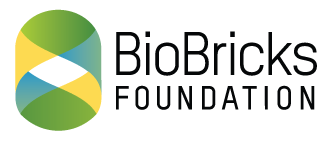sharing & innovation/OpenMTA FAQs for Researchers
OpenMTA FAQs for Researchers
If you don't find the answer you need here, let us know.
What is a Material Transfer Agreement (MTA)?
A Material Transfer Agreement, or MTA, is a contract that governs the transfer of tangible materials between two or more parties. In the biological sciences, MTAs are used to define the rights and obligations of the provider (the one making the material available) and recipient (the one obtaining the material) with respect to ownership and use of the original biological materials as well as progeny, modifications and derivatives of the original biological materials. Typical biological materials transferred using MTAs include DNA samples, plasmids, microorganisms, cell lines, reagents, antibodies, and other research tools.
Why are MTAs used?
Scientists traditionally have shared research materials freely. However, academic institutions and companies have become increasingly concerned about the potential commercial value of materials used in fundamental research. As a result, there is increasing demand among providers of materials to have written agreements to ensure a common understanding of ownership, compensation, and permitted uses of the materials. Most academic institutions require MTAs, even when researchers want to share materials freely. And companies routinely require MTAs, even when sharing materials that are not valuable to the company.
What is the Open Material Transfer Agreement (OpenMTA)?
The OpenMTA is a simple, standardized agreement that enables individuals and institutions to share their materials on an open basis. The OpenMTA incorporates many of the protections offered by the UBMTA, such as protection from liability and no warranties, but also includes provisions that reflect with the values of open communities, such as access, attribution, reuse, redistribution, and non-discrimination.
What will the OpenMTA accomplish?
The OpenMTA will
- eliminate or reduce transaction costs associated with access, use, modification, and redistribution of materials;
- provide an avenue for researchers and their institutions to be credited for materials and data made openly available;
- support collaboration among researchers across institutional and international boundaries
- facilitate translation of biotechnologies developed with public or philanthropic funds into commercial products and services that benefit all people and the planet;
- promote access to materials for researchers in less privileged institutions and world regions.
Why use the OpenMTA (instead of no MTA at all)?
MTAs have earned a poor reputation among researchers and technology transfer personnel alike for being overly burdensome, time-consuming, and restrictive, resulting in delays in research and draining the limited resources available to technology transfer offices. Understandably, some institutions have adopted “no MTA” policies for transfers of certain materials from one university researcher to another. However, these policies typically specify “if materials are transferred without a specific MTA, the transfer will be presumed to be made under the terms stated in the UBMTA even though no written agreement has been signed.”
As a result, when no MTA is used the restrictive terms of the UBMTA apply even when researchers wish to share their materials freely. By comparison, the OpenMTA allows researchers to share their materials on an open basis by specifying terms for access, attribution, reuse, redistribution and nondiscrimination.
What is the Uniform Biological Material Transfer Agreement (UBMTA)?
The UBMTA is a standardized agreement developed in 1995 by the U.S. National Institutes of Health as a means to have common terms governing the sharing of materials between academic institutions. In keeping with the proprietary nature of some of the materials that are transferred between institutions, the UBMTA includes provisions that limit sharing of materials to academic or non-profit institutions only, restrict use and redistribution of the materials, and prohibit commercial use without obtaining prior written consent of the provider.
Who can sign an MTA?
Only authorized individuals may sign MTAs. At most institutions, individual researchers are not authorized to sign MTAs on behalf of their institutions. Instead, MTAs must be reviewed and approved by an authorized institutional official. However, because the researchers using the materials ultimately are responsible for fulfilling the obligations of the MTA, most MTAs also require the signatures of the providing and recipients scientists acknowledging their responsibilities and duties under the agreement.
Are signatories to the OpenMTA limited to academic and nonprofit institutions?
No, signatories to the OpenMTA may include companies, for-profit research institutions, and community laboratories as well as traditional academic and nonprofit institutions involved in biological research and transfer of materials.
Who developed the OpenMTA?
The OpenMTA is being developed as a collaborative effort between the BioBricks Foundation and the OpenPlant Initiative with input from researchers, technology transfer professionals, social scientists, lawyers, and other stakeholders from across the globe.
May I review or comment on the OpenMTA?
Yes, the comment period is still open. To obtain a copy of the DRAFT OpenMTA Master Agreement for review and comment, please email Linda Kahl, Senior Counsel, BioBricks Foundation at linda@biobricks.org.
